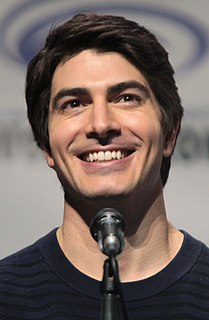A Quote by Jane Hirshfield
Creativity itself is a joyous unlatching. The act of creative imagining, inventing, saying differently, crafting a metaphor or image, then crafting another metaphor or image when you go further or when you revise - all these take whatever you think "is" and make clear that other possibilities exist as well. The sense of possibility, the amplitude and freedom that sense of malleability brings - for me, that cannot help but be joyous.
Related Quotes
I make one image—though 'make' is not the right word; I let, perhaps, an image be 'made' emotionally in me and then apply to it what intellectual & critical forces I possess—let it breed another, let that image contradict the first, make, of the third image bred out of the other two together, a fourth contradictory image, and let them all, within my imposed formal limits, conflict.
My poems always begin with a metaphor, but my way into the metaphor may be a word, an image, even a sound. And I rarely know the nature of the metaphor when I begin to write, but there is an attentiveness that a writer develops, a sudden alertness that is much like the feel of a fish brushing against a hook.
The word "metaphor" means carrying something from one place to another . . . and it is when you describe something by using a word for something that it isn't. This means that the word "metaphor" is a metaphor. I think it should be called a lie because a pig is not like a day and people people do not have skeletons in their cupboards. And when I try and make a picture of the phrase in my head it just confuses me because imagining and apple in someone's eye doesn't have anything to do with liking someone a lot and it makes you forget what the person was talking about.
The image can only be studied through the image, by dreaming images as they gather in reverie. It is a non-sense to claim to study imagination objectively since one really receives the image only if he admires it. Already in comparing one image to another, one runs the risk of losing participation in its individuality.
I think that as poets, we can get away with stuff because we can ride on the melt of metaphor. We cover a lot of terrain psychically and temporally and linguistically via metaphor, and that can be a stand-in for an argument, whereas in prose, you have to make the argument, and you have to be convincing because the sequence must make sense in time and purpose.
The poetical impression of any object is that uneasy, exquisite sense of beauty or power that cannot be contained within itself; that is impatient of all limit; that (as flame bends to flame) strives to link itself to some other image of kindred beauty or grandeur; to enshrine itself, as it were, in the highest forms of fancy, and to relieve the aching sense of pleasure by expressing it in the boldest manner.
Creativity is more about taking the facts, fictions, and feelings we store away and finding new ways to connect them. What we're talking about here is metaphor. Metaphor is the lifeblood of all art, if it is not art itself. Metaphor is our vocabulary for connecting what we are experiencing now with what we have experienced before. It's not only how we express what we remember , it's how we interpret it - for ourselves and others.
I think I've learned a lot about how to make movies, and particularly about how to edit movies by thinking about how similar problems are resolved in other forms. The issues in all forms are the same in an abstract sense, aren't they? Characterization, abstraction, metaphor, passage of time... Whether it's a movie, a novel, a play, or a poem, those issues exist. And each person resolves them differently.
Moreover, metaphor is typically viewed as characteristic of language alone, a matter of words rather than thought or action. For this reason, most people think they can get along perfectly well without metaphor. We have found, on the contrary, that metaphor is pervasive in everyday life, not just in language but in thought and action. Our ordinary conceptual system, in terms of which we both think and act, is fundamentally metaphorical in nature.
The traditional metaphor for careers is a ladder, but I no longer think that metaphor holds. It just doesn’t make sense in a less hierarchical world... Build your skills, not your resume. Evaluate what you can do, not the title they’re going to give you. Do real work. Take a sales quota, a line role, an ops job. Don’t plan too much, and don’t expect a direct climb. If I had mapped out my career when I was sitting where you are, I would have missed my career.
To go too much another way, for the sake of my ego in wanting to create something... in the situation of Superman is just wrong. Especially since we're continuing, in a sense, that story. The characters have to feel somewhat similar. What are you going to do with Superman? The world, and all the people that have created it, created him and have all kind of come together to make this image. Everybody kind of has the same idea of what it should be. So for me to go, "Okay, no, I think he should have a southern accent." Or something crazy, just doesn't make any sense.






































